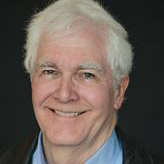As I have been exploring the notion of cosmocentrism, I have been drawn to a group of space philosophers I discovered while writing The Overview Effect. These Russian thinkers in the 19th century developed the idea of cosmism, an idea that included not only the exploration of outer space but also the perfection of humanity.
I wrote about the Russian Cosmists in The Overview Effect, but primarily to demonstrate the philosophical roots of the Soviet space program, as compared with the American. Nikolai Fyodorov, chief librarian in Moscow, espoused ideas so similar to my own that I no longer consider my concepts to be at all radical. Here is a passage I quoted in the book:
The nineteenth-century Russian philosopher of space, Nikolai Fyodorov, developed the idea of the common task, basing it on a series of striking concepts:
“The root idea … is that human beings do not have their natural horne on Earth; rather they are organisms whose ecosystem is more properly the whole cosmos… In Fyodorov’s view, everything is alive, from the gigantic suns of distant galaxies to the smallest pebble under our feet here on Earth. Everything is organic: the biggest difference between the life of rocks and the life of human beings is that they live at different velocities in time and at different degrees of consciousness in space. Because people have consciousness in the highest degree, it is their task to ‘regulate nature,’ not just here on Earth, but throughout the universe.”
Fyodorov was a true space philosopher!
This line of thinking is very similar to what I have expressed in my new book, The Cosma Hypothesis. I wouldn’t say I agree with everything Fyodorov had to say, but I like his effort to understand human purpose in the universe. In particular, it is fascinating to see how he turns our idea of “home” on its head, suggesting that we are really cosmic creatures, not Earthlings.
Perhaps most intriguing is the fact that Fyodorov’s philosophical thought was translated into practical planning for spaceflight by Konstantin Tsiolkovsky.
Copyright, Frank White, 2017, All Rights Reserved
[/et_pb_text][/et_pb_column][/et_pb_row][/et_pb_section]

Join our mailing list to be updated on future published articles.
Copyright © 2018-2019 2211. All Rights Reserved.
One Response
Over the holidays I revisited with a friend some presentations of Graham Hancocks where Panspermia theories were touched upon. Though I’d not heard of these specific ones, and having being entrance by Karl Sims 1990 animation https://www.youtube.com/watch?v=AgeuRukfZLE), the notion made new sense when considerting how we look at DNA now as an elegant and highly scalable data store. Related was the idea that the communication we’re looking for out there, might possibly already be in there. Certainly that is a far more elegant transmission strategy of an advance species.
Comments are closed.